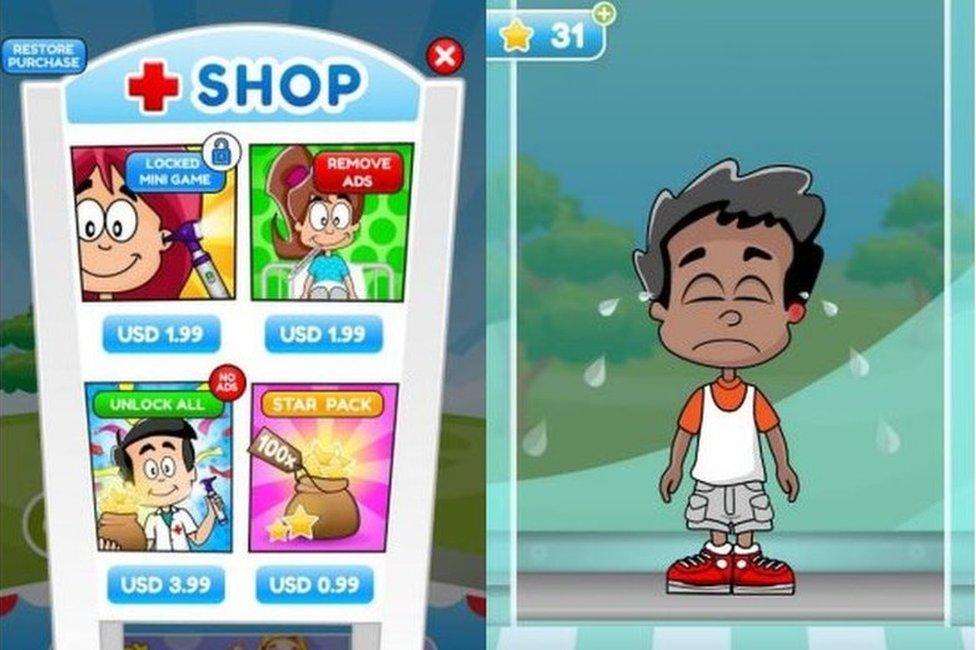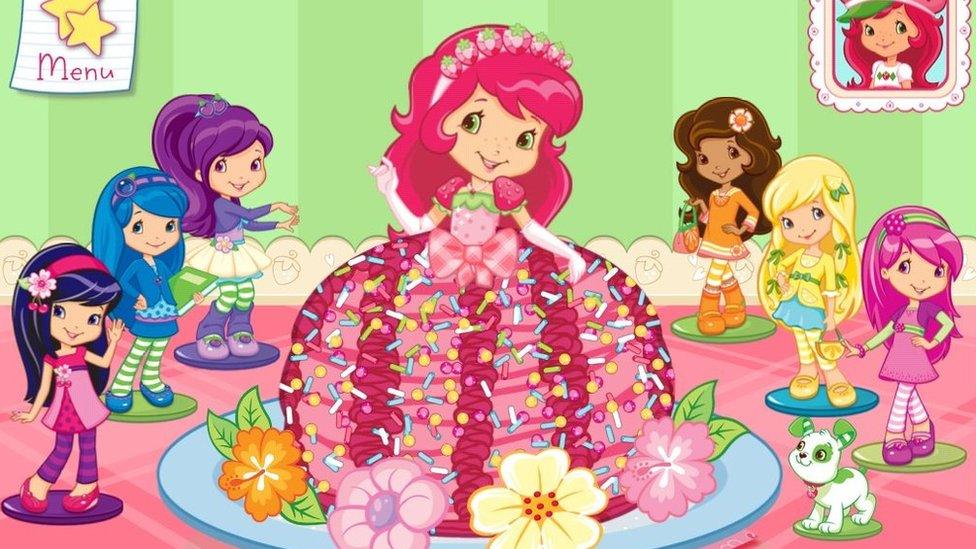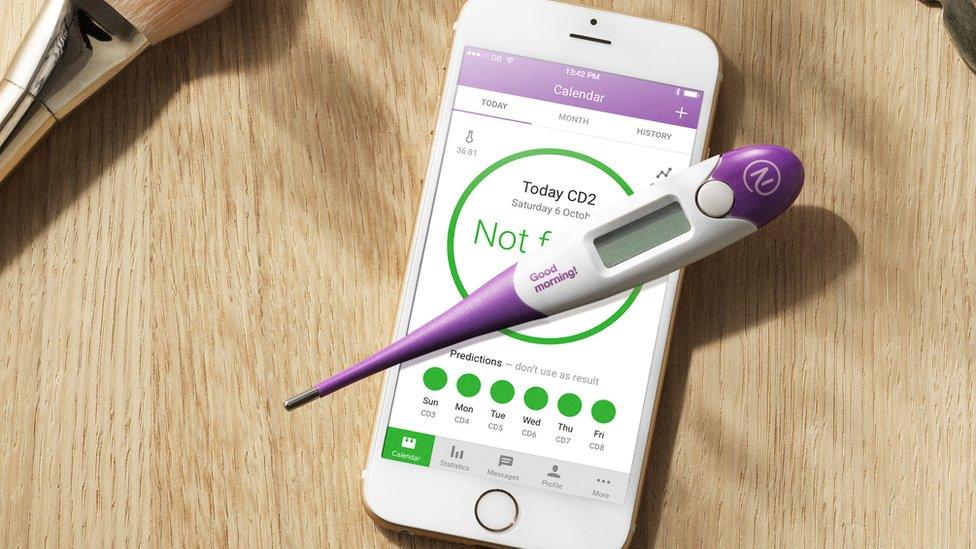Android's under-5s apps have 'unfair and deceptive' ads
- Published

Campaigners gave Doctor Kids as an example of a title in which a character cries if players click away from an in-app store
Under-fives are being blitzed with app-based ads which are often manipulative, inappropriate or deceptive, according to a coalition of campaign groups.
Examples given include a character crying if the child does not pay to unlock part of a game, and an app promoting another title that showed a cartoon of the US president trying to press a "nukes" button.
More than 20 groups have called on US regulators, external to launch an official probe.
A UK charity has also urged action.
The calls were prompted following a report by the University of Michigan's Medical School into the phenomenon, external.
Its researchers reviewed a total of 135 apps available via Google's Play Store, which are marketed to or played by children under five.
Of these, 85 were "free" and had some sort of advertising. The other 50 - of which 88% had ads - were paid for.
"Our findings show that the early childhood app market is a wild west, with a lot of apps appearing more focused on making money than the child's play experience," commented the study's senior author, external Jenny Radesky.
"I'm concerned about digital disparities as children from lower-income families are more likely to play free apps, which are packed with more distracting and persuasive ads."

The university study raised several concerns about the game Strawberry Shortcake Bake Shop
Character endorsements
The study gives several examples of advertising techniques which it thinks raise concern:
use of commercial characters - in Paw Patrol: Air and Sea Adventures it says some characters show facial expressions of disappointment when the player does not choose locked items
teasers - in the free version of Balloon Pop it says the user is shown fancier-than-normal balloons, but if selected a sound effect and written text state that they are only available in the full app
interruptions - in Kids Animal Jigsaw it says pop-up ads appear every time the player completes a puzzle, meaning they take up about as much time as gameplay
character encouragement - in Strawberry Shortcake Bake Shop it says the protagonist always states how much better the locked pay-to-use tools are than the free ones
unsuitable ads - one unnamed app was said to feature banner adverts for bipolar disorder treatments and Instagram, which has a 13+ age limit
camouflaged items - in Talking Tom it says that a present falls from the ceiling which appears to be part of the game but is actually a prompt to "watch videos and win"
Most of the developers involved have yet to comment, but the team behind Talking Tom have acknowledged the problem.
"We received feedback that some of the ads in our games could be interpreted as misleading," said Outfit7.
"Unfortunately, what we thought was clear to our users, was not. Consequently, we will be taking immediate action... [and will be] clearly marking the rewarded video placements."
The campaign groups also presented further examples of their own that they said were concerning.

Olaf's Adventures is said to feature glowing cakes that when tapped bring up a store
They included Disney's Olaf Adventures - based on the movie Frozen - which is said to feature glowing cakes which take players to a store despite not being marked as ads.
Edbuzzkids' Sight Words was also highlighted for prompting players to click on ads by using cartoon hands to guide them to a banner.
In addition, the groups said the "x" used to close out of ads in several apps was very small, meaning children were likely to tap outside it and be led to a purchase screen or app store instead.
"The blurred lines between ads and entertainment may simply overwhelm the defences children are still in the process of building," the groups wrote to the Federal Trade Commission.
"In short, preschool children are vulnerable to advertising and benefit from clear separation of ads and programming content. Yet many of the ads on pre-school apps would be difficult even for adults to identify.
"It is deceptive to target young children with ads in this way."
The chief executive of Childnet, a London-based internet safety charity, said British authorities might also need to re-examine the issue.
"This issue and the questions raised are just as relevant in the UK," Will Gardner told the BBC.
"If advertising is aimed at children who are too young to distinguish advertising from other content for example, then there is a clear issue to address."
The matter falls under the remit of the Advertising Standards Authority in the UK. Its current rules focus on whether ads might cause distress or include age-restricted products, external.
App store rules
Google has issued a statement saying that it already operates rules to protect young users.
"Apps primarily directed to children must participate in our Designed for Families Programme, external and must follow more stringent requirements, including content and ad restrictions, and provide a declaration that they comply with all applicable privacy laws" a spokeswoman said.
"Additionally, Google Play discloses whether an app has advertising or in-app purchases, so parents can make informed decisions."
The study's authors said they had not tested iOS apps and were unclear whether iPhone users faced similar issues.
However, they noted that Apple's guidelines state that "apps must not include links out of the app, purchasing opportunities, or other distractions to kids unless reserved for a designated area behind a parental gate".
"It is unknown whether iOS apps adhere to these guidelines," they added.
Apple has not commented on the issue.
- Published29 August 2018

- Published18 April 2018

- Published1 November 2017
